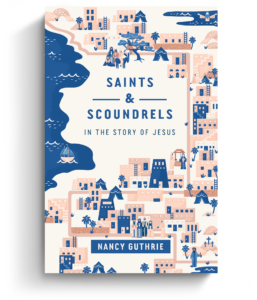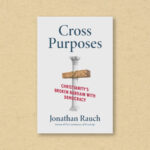When churches gather for worship, we typically follow a rhythm—or liturgy—of call and response. Whether you’re part of a free-church tradition or a more liturgical one, you’ve probably noticed this rhythmic back-and-forth in your gatherings.
First, you hear God’s Word call to you—perhaps in what we describe literally as the “call to worship” but then also in the reading of Scripture, in words of blessing or assurance, and certainly in the sermon’s words of instruction. After you hear God’s Word, you respond by lifting your voice in song, greeting others, giving money, taking communion, or even shouting, “Amen!”
We repeat this pattern every week in gathered worship, but are we equally intentional about the rhythms and shape of our personal worship and devotions? Recently, I wrote to Nebraska pastor, The Keller Center fellow, and TGC Council member Bob Thune to ask about a resource his church produces and uses to cultivate intentional personal piety. Here’s what Thune told me about the Daily Liturgy podcast.
How did the Daily Liturgy podcast come about?
I grew up in a stream of evangelical Christianity that was big on personal devotions and a “daily quiet time.” Then, in young adulthood, I discovered the riches of the Protestant liturgical tradition. My experience was that the quiet-time evangelicals weren’t always historically grounded and Protestant traditions that followed a liturgy weren’t as pietistic and devotional. So when I planted Coram Deo Church 20 years ago, I wanted to bring these emphases together.
One year, we put together a daily liturgy book for Advent that families or roommates could use around their dinner tables to meditate on Scripture and pray together. Our church loved it! I did too. I began to look for a daily liturgy resource in an audio format that I could use for my own daily devotion and worship.
I searched for a daily devotional podcast that included both Scripture readings and other elements from the church’s liturgical tradition—a resource along the lines of the prayers in the morning office of the Book of Common Prayer. I was sure such a podcast must exist, but I couldn’t find it! So, I gathered a team from our church to create one. In the Advent season of 2016, we read that Advent book aloud into a microphone, and the Daily Liturgy podcast was born.
Tell me about the liturgical order the podcast follows. Why did you choose that order? Where is it derived from?
Before planting a church, I took a deep dive into historic Christian worship liturgies. What I discovered is that Christian worship across the ages has had a fairly standard shape. That was new information for me because I’d grown up in a free-church tradition that rarely referenced historic patterns of worship. I was amazed to learn that gathered Christian worship has always followed a predictable pattern.
Not only that. You also find in church history a basic pattern for daily private prayer. The best Protestant example is the “daily office” in the Book of Common Prayer. In the podcast, we sought to blend elements from the public order of Christian worship with elements from the private daily office of prayer. We settled on the exact order in the podcast based on what seemed most fitting and appropriate for our goals.
We view the historic Christian liturgy like open-source software: There’s a standard base of code everyone is working with, but the possibilities for creative appropriation are almost endless. So, it was fun to see our team start with a baseline of historic prayers and confessions then see them piece new liturgies together in creative ways. These are some of the key resources we’ve drawn from, many of them republications of much older texts:
- The Worship Sourcebook, 2nd edition, edited by Emily Brink and John D. Witvliet (Baker, 2013)
- The Book of Common Prayer (Anglican Liturgy Press, 2019)
- The Valley of Vision: A Book of Puritan Prayers and Devotions (Banner of Truth, 1988)
- Creeds, Confessions, and Catechisms: A Reader’s Edition, edited by Chad Van Dixhoorn (Crossway, 2022)
- Reformation Worship: Liturgies from the Past for the Present, edited by Jonathan Gibson and Mark Earngey (New Growth, 2018)
- Grace from Heaven: Prayers of the Reformation, edited by Robert Elmer (Lexham, 2024)
Our team acts as curators. We pull together the set of Scripture readings, prayers, and confessions. Our goal is to create an experience of meditation that leads to worship, and my barometer for whether that’s happening is whether it’s happening in me. I usually listen to Daily Liturgy first thing in the morning while I walk my dog. And nearly every morning, I find it helps me ground my soul in the gospel and set my affections on Christ.
Why a podcast? Why not a devotional book or open chapel hours where you invite church members to pray through the liturgy in person?
The podcast format arose from my personal longings. Like most people, I spend time each day commuting, exercising, and doing household chores. I wanted to redeem those hours by using them worshipfully, and a podcast seemed like a wise way to do that. For me, hearing the Scriptures hits on a different register than only reading them.
We do have a prayer gathering every weekday morning at Coram Deo, and there’s a hard-copy Book of Daily Liturgy as well. But the podcast format allows listeners to capture 12 minutes of each day for focused meditation and prayer. That was the goal—to create a resource that would help to work prayer and meditation into our congregation members’ daily fabric.
What fruit from the podcast have you seen in your congregation?
That was the goal—to create a resource that would help to work prayer and meditation into our congregation members’ daily fabric.
The earliest fruit was in the lives of the curators and readers. The work of gathering, compiling, and editing some of the richest prayers in the church’s history is powerfully formative. I remember many recording sessions when either the reader or the producer was moved to tears as God’s Word was gently and thoughtfully read out.
In our church, the primary fruit has been in helping members establish spiritual disciplines. We have many young Christians new to the Scriptures at Coram Deo. Daily Liturgy has helped them build a daily Scripture intake habit. I love hearing stories of moms listening with their kids in the car on the way to school or of medical residents tuning in at 5 a.m. as they get ready for another long day at the hospital.
God’s Word is living and active, sharper than a two-edged sword (Heb. 4:12). What’s great about Daily Liturgy is that it centers listeners on God’s Word and on prayer. The only unique things we add are the reading voices and curation of the content. It’s beautifully simple. We’re doing what Christians have always done—meditating on God’s Word and speaking to him in prayer—but we’re doing it in a new medium, and it seems to resonate with people.
It’s been a great joy to hear from listeners all over the world. Pastors in South Africa, stock traders in Manhattan, and political luminaries in Washington, DC, have all expressed gratitude for the podcast and have told us how it’s deepened their personal devotion.
In our busy culture and era of small groups, midweek church gatherings are less frequent. Do you think a podcast like Daily Liturgy fills a discipleship gap?
As as helpful as it may be, a podcast is still disembodied. A digital medium should never replace the rhythm of meeting together personally with God’s people (Heb. 10:25). But I do think a podcast like this one can fill some discipleship gaps. Christians gather to hear God’s Word (1 Tim. 4:13). The lectionary—the three-year cycle of Scripture readings for public worship—was an attempt to give believers a steady diet of readings from all the genres of Scripture and all the epochs of redemptive history. Daily Liturgy is an audio lectionary. It aims to saturate listeners in the Scriptures and to give them language for prayer and communion with God. To that extent, it aids purposeful discipleship.
I believe we’re recovering something important by emphasizing the hearing of the Word
I also believe we’re recovering something important by emphasizing the hearing of the Word. Since Gutenberg’s invention of the printing press, we’ve put great emphasis on the written word. But the Scriptures were originally intended to be heard. Everyone who listens to Daily Liturgy tends to have a favorite narrator—there are five voices on the podcast, rotating weekly. That means listeners are paying attention to how the words of Scripture are inflected by each reader, to how the Bible sounds when it’s read. The human voice adds depth and emphasis that helps the written word come alive in a fresh and formative way.
Consider Jesus’s Generous Grace with This Free Ebook
 John the Baptist. Judas. Zaccheus. Caiaphas. We could quickly label these individuals as heroes or villains—but each of their experiences with Jesus provides a unique and unexpected glimpse of his generous grace. What might we have overlooked in their familiar stories?
John the Baptist. Judas. Zaccheus. Caiaphas. We could quickly label these individuals as heroes or villains—but each of their experiences with Jesus provides a unique and unexpected glimpse of his generous grace. What might we have overlooked in their familiar stories?
In Saints and Scoundrels in the Story of Jesus, seasoned bible teacher Nancy Guthrie provides readers with a fresh look at some of the most well-known personalities described in the Gospels.
We’re delighted to offer this ebook to you for FREE today. Follow the link for instant access to a resource that reminds us of the only hope for supposed saints and scandalous scoundrels—the mercy of God







































